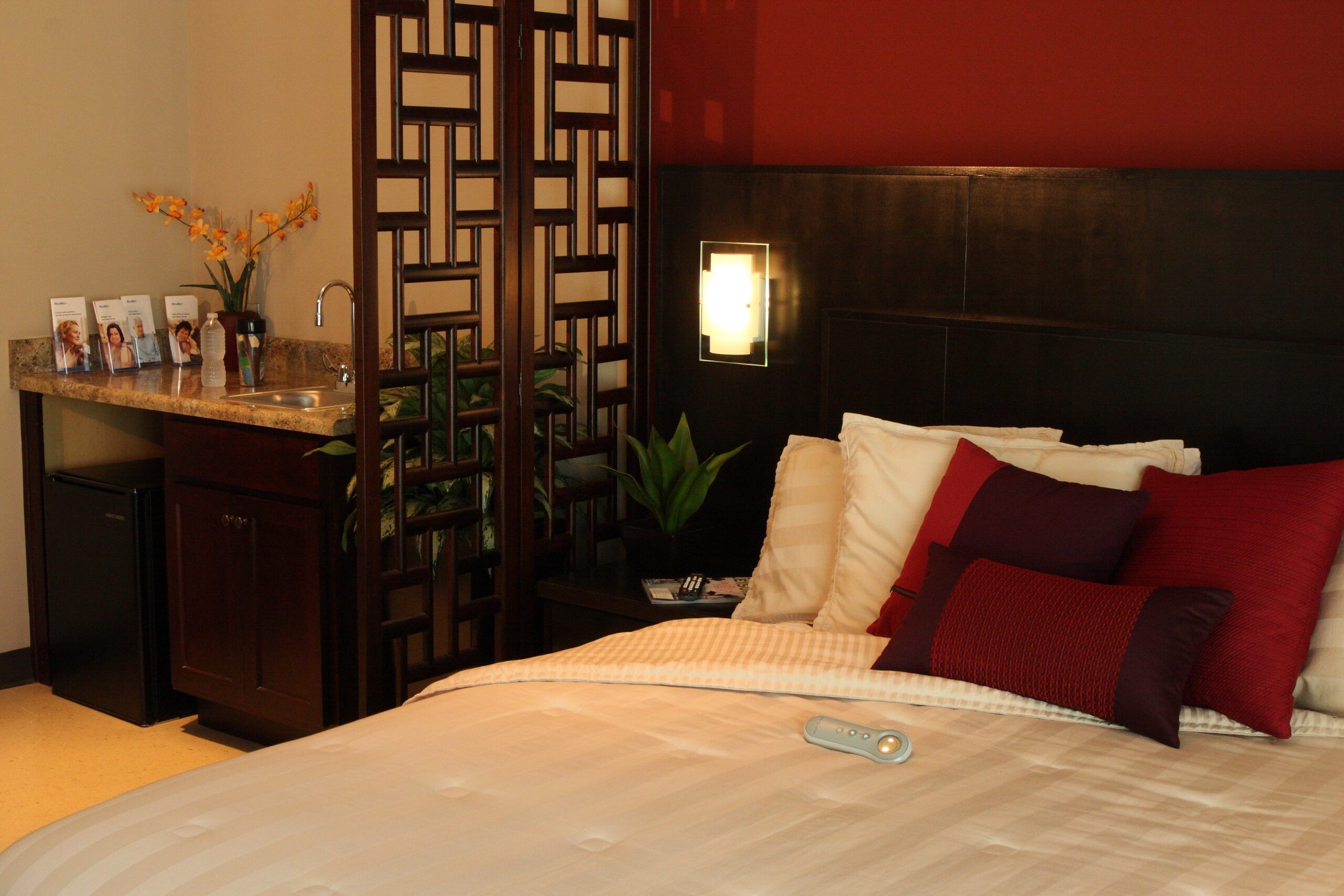
Curious about your sleep quality? Our in-lab sleep study is the gold standard, revealing vital insights into your restorative rest. Discover the exact percentage of deep, restorative sleep versus emotional sleep (REM) you experience each night. Uncover the barriers hindering your rejuvenation, from respiratory disturbances to nighttime awakenings.
Why invest in an in-lab study? It’s your gateway to tailored solutions. Pinpoint the reasons behind your sleep disruptions. Identify the perfect device and precise pressure to correct your sleep apnea. Detects subtle signs like seizures, narcolepsy, elevated carbon dioxide levels, or abnormal leg movements, ensuring a comprehensive diagnosis.
Invest in your health by investing in your sleep. Take the first step toward profound rejuvenation. Opt for our in-lab sleep study and reclaim your nights, one peaceful slumber at a time!”
Quality sleep solutions are just a click away. Say goodbye to excuses and hello to better sleep. Schedule your Televisit with Holistic Sleep Restoration today!
If your physician has ordered an in-lab sleep study, here’s what you need to know to prepare for the process and what to expect during the study:
The sleep clinic’s billing department will submit the study to your insurance for prior authorization.
Once approved, be aware that you may need to contribute to the co-insurance cost, as insurance might not cover the entire study expense.
Familiarize yourself with the directions provided by the clinic. They offer pictures, videos, and detailed instructions to simplify the process for you.
Pack comfortable clothes for the study. The sleep center provides pillows, blankets, and has a bathroom with a shower for your convenience.
Continue taking your regular medications as prescribed. If you anticipate difficulty sleeping, consult your physician about a sleeping pill prescription.
Upon arrival, electrodes will be placed on various areas of your head, around your eyes, chin, legs, and a belt around your chest and belly.
Your heart rate, oxygen levels, and breathing patterns will be monitored. A nasal prong will be placed on your nose for airflow monitoring.
While some discomfort might be experienced due to the sensors, they are essential for providing accurate information for diagnosis.
If you need to use the restroom during the study, don’t worry; the sleep technician will assist you.
After the study, you can take a shower, and then you’re free to go home or to work.
In-lab sleep studies typically begin around 8:00 PM or 9:00 PM and conclude at 5:00 AM or 6:00 AM.
Remember, the in-lab sleep study is a crucial step toward accurately diagnosing your condition. The discomfort experienced during the study is temporary and helps provide valuable insights for your physician to develop an effective treatment plan tailored to your needs. Your cooperation and patience during this process are greatly appreciated and contribute significantly to the success of your diagnosis and treatment.
Please Note: We Accommodate Two Patients per Night
Patient 1:
Arrival Time: 8:00 PM
Study Ends: 5:00 AM
Patient 2:
Arrival Time: 9:00 PM
Study Ends: 6:00 AM
Multiple Sleep Latency Test (MSLT): The MSLT is a daytime study where clients are given five nap opportunities, each lasting 20 minutes, to detect conditions like narcolepsy. Patients with narcolepsy often enter REM sleep within 15 minutes of sleep onset.
Maintenance Wakefulness Test (MWT): MWT assesses a client’s alertness during the day. It consists of four sleep trials with breaks of two hours.
PAP Naps: These are daytime sleep studies designed to help patients acclimate to CPAP devices.
Diagnostic Polysomnography: This comprehensive nighttime study detects various sleep disorders while clients sleep. It involves monitoring by a sleep technologist.
Split Night Study: The study begins with a diagnostic portion in the first part of the night. If criteria are met, it transitions to a therapeutic portion with a PAP device.
Titration Study: This study assesses the specific device (CPAP, BPAP, ASV) and the correct pressure needed to eliminate most respiratory events while correcting low blood oxygenation.
These studies are conducted at specific times to accurately diagnose sleep disorders and develop appropriate treatment plans for patients.